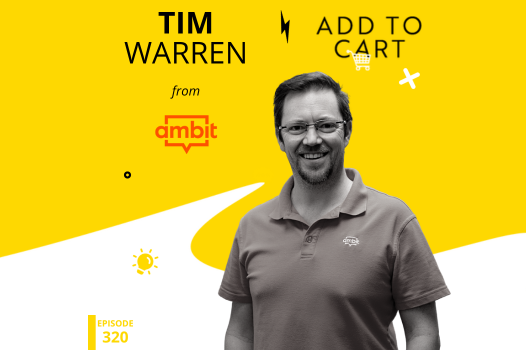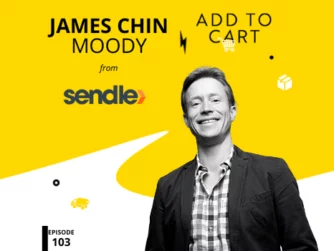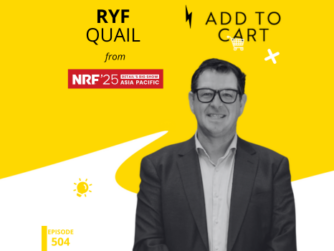In this episode of Add To Cart, we are joined by Tim Warren, Co-Founder and CEO of Ambit
Ambit is a company that started building a conversational artificial intelligence platform back in 2016! Way ahead of the game, or as Tim describes it, just braver than others, they went all in on Ambit GPT, a retail focused chatbot that provides deeply personalised, automated conversations that delight customers. Kiwi born and bred, Ambit has clients such as The Warehouse group, Glassons and Dermalogica and raised a million New Zealand dollars last year to accelerate expansion here in Australia. Tim admits that understanding AI is really hard, but he does a great job of demystifying some of it for us. He unpacks the different types of data behind the platforms, shares how retailers can get the best out of their chatbot and how to stop the black hats from winning in the wild west of knowledge engineering. He also goes into fan fiction territory and explains how to train our very own AI Harry Potter wizard. Just go with us here!

“I guess we thought, well, we might not be smarter than other people, but maybe we’re braver”
Tim Warren
Harnessing the power of GPT for your purpose
“So what are you gonna do if you’re a retailer today? What you do is you work with a partner, someone who’s got experience in this area with data security and they’ve worked with retailers and that kind of thing. And you don’t start from scratch, because, even if you’re Myers, you probably haven’t got a hundred million to throw at this thing, right?
You use a pre-trained model like we use. I’m simplifying a little bit, but you get a copy of a pre-trained model and you host it in your own environment. So you don’t have to do the pre-training of it, so you’re not paying for that cost. And then you tweak it and you trim it down and you take out all the things that you don’t need…a retailer’s model does not need information about medical procedures. So you can strip a lot of that out and that’s called either detraining or fine tuning or a phrase that I use is turning a large language model into a medium language model.”
The opportunity to do what they want
“So we will get 50 to 60% of first time users might try chat. It doesn’t mean they’ll exclusively use it. And it’s not a fail if they use different methods. That’s a win, because that’s their experience There’s a bit of a misnomer when people talk about substitution…Oh, we want to substitute out of phones onto website and they think it’s a failure if someone uses something else. No, that’s a win. If you’ve given people that opportunity to do what they want, that’s powerful. It’s only a failure if they tried the phone and it didn’t ring. That’s a failure. But you never have that failure with automation.
There’s definitely a subtlety there, which is once people have a good experience, almost everyone, and we’re talking in the high 90%, they come there and they do their entire next transaction through chat to the level that’s possible. So that’s what it tells you about the future. So if it suits young people and I’ve been doing this six years now. The people who were teenagers before are maybe buying houses and having families now. So they’re now talking to banks and getting utilities, where six years ago they were buying a t-shirt and glasses. So the cohort changes and those people are coming back.”
A force for good or evil?
“So am I optimistic? Yes, I am. I’m realistic though. Think of it like nuclear power. It can be relatively cheap energy, but when it goes wrong, it can be quite a problem. So I think there will be some really bad issues that happen. I think regulation needs to run a lot. There’s none at the moment. I think the industry is very smart to try and start self-regulating. They haven’t done a great job. I’m part of that. I’m encouraging that. So I’m on a couple of bodies pushing for proactive self-regulation where we can get governments to take on appropriate regulation. It needs to be global.
I think it looks a little bit like the car industry. So what tends to happen is something comes out on a Mercedes S-Class, that’s the first thing in the world to have. They invent everything like ABS. After 10 years, ABS is available on the base level model. So I think it’s gonna be accelerated.
But if you wanna see what the typical retailer looks like in three years, probably look at the very best retailers today. That’s what I would say.”
Links from the episode
This episode was brought to you by…






